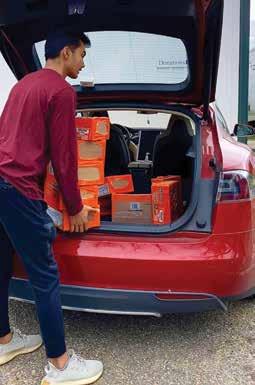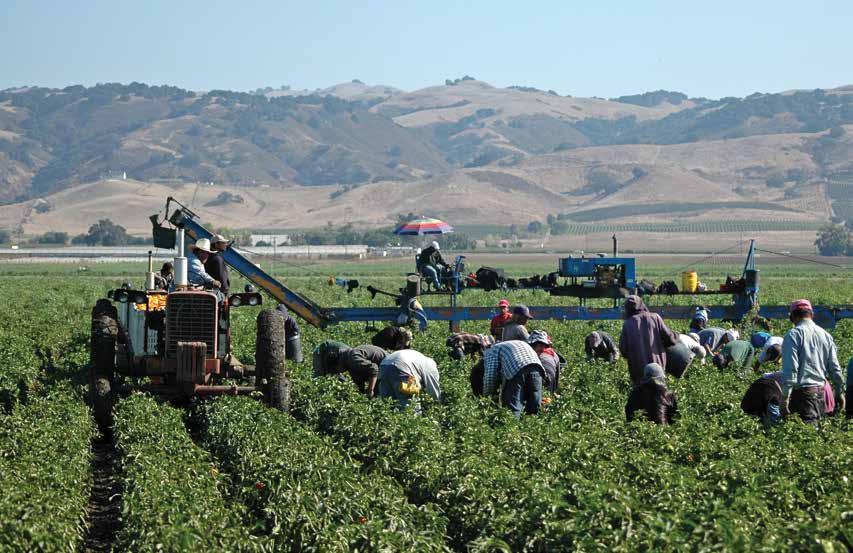Migrant workers in fields face increased health risks during the pandemic. Stock photo
Keeping the Food Pipeline Going: COVID-19 on Farms Mason Engineering’s Leigh McCue developed a virtual tool to help farm owners across the United States learn how COVID-19 spreads among the migrant worker community. The food pipeline in this country depends on temporary agricultural workers on H-2A visas, and farm owners must provide board for these workers, which usually results in people living in close quarters. This poses a problem for mitigating the spread of the coronavirus should anyone in the camps get sick, and McCue, an associate professor in the Department of Mechanical Engineering, wanted to develop a user-friendly tool that would show how the virus could potentially spread and how certain actions can help. “You really don’t want farm workers getting sick for multiple reasons,” says McCue. “We worry about their health and being able to maintain the worker population that is needed to run the farms and keep the food pipeline going. There are a lot of implications.” When McCue was looking at modeling how a sick person traveling through an airport could affect the spread of the coronavirus, she reached out to contacts at the Northeast
44 VOLGENAU SCHOOL OF ENGINEERING ANNUAL REPORT 2020






















